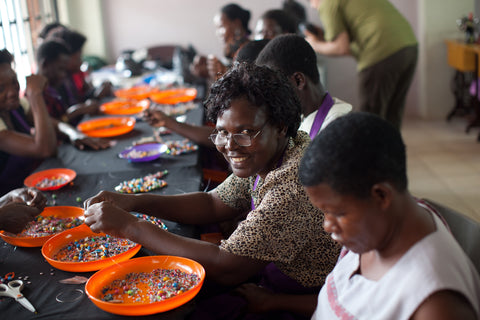“Many people have acquired their PhD's by studying us but no one helps us.”
Ouch. I read this quote from a woman in Mozambique as I worked through a course called International Women's Health and Human Rights. It stuck with me, nagged at me. As I thought a little deeper about it, I asked myself: Has there not been lots of help given? Has there not been millions of dollars spent trying to help? Has there not been many people and organizations trying to help? On the surface, I believe the answer is yes.
Sometimes we, in the West, think we can apply Western answers to developing nations' problems. We think we know best – because, after all, we are highly educated and evolved. (insert sarcasm) We also tend to be impatient and want quick and measurable results. For a detailed look at this and suggestions on how to do this better, I recommend When Helping Hurts by Steve Corbett and Brian Fikkert.
The field of humanitarian work has been around long enough that we can now look back and see the effect it has had on our world. Many, many positive strides have been made. When you look past the data, you can start to where things have gone wrong at times. Simply sending money, it seems, is not the answer.

The artists that work with Just One end up with more than just a job. They gain freedom, choice and opportunity. They can send their children to school, They can provide food and medicine for their family. They can save to purchase land in the future. Exchanging money for a service or product sends a message of worth. When we purchase a necklace, we tell a woman her work is valued. She is valued.
One of the groups that Just One partners with is Power Women Group from Kibera, Kenya. They have a saying (and wear it on t-shirts!) “Say No to Dependency”. These women want to work. They want to be able to earn a wage to provide for their families. It’s an incredible accomplishment for someone, especially a woman, born into poverty. You can see it in their beautiful smiles.
Every single one of you that has purchased a Just One piece has contributed to that smile.

Sarah lives in Northern Ontario with her family and works at Muskoka Woods Sports Resort. Sarah and her husband have four children, and one grandson. She is an avid reader and learner. In 2012, Sarah launched JustOne with Krista and they travelled to Kenya, Uganda and South Africa together. Sarah is still involved with JustOne through her weekly blog posts, and is a constant source of educating Krista and others on the world's needs. Sarah has a blog we love to read called "Recipe for Messiness" that is about finding beauty amidst our messy lives.


Leave a comment